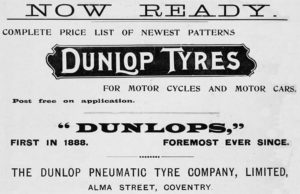Full Name of the case- Dunlop Pneumatic Tyre Co. Ltd. v. Selfridge & Co. Ltd 1915 UKHL 1, AC 847
Petitioner– Dunlop Pneumatic Tire Co. Ltd.
Respondent– Selfridge & Co. Ltd
Decided in House of Lords, UK
Year of Judgement- 26 April 1915
Introduction to the concept
This case is an international law case decided by the House of Lords in the UK. It is based upon the concept of Privity of contract. Privity of contract is a common law principle that highlights that if there is a contract in place, then only the parties to that contract have the legal right to impose any obligation or confer any right upon any other person, who is a party to the said contract. This means that only the parties to a contract are liable to sue or initiate any legal obligation to enforce their rights or claim any damages that may arise. This concept is based upon interest theory which means that only the parties that have interest in a contract can protect their rights under the said contract as per the contract law. As per the Modern law of Competition Act and the EU Competition Law, such an agreement would be termed as an anti-competitive agreement and shall not be legally binding. In India, the concept of Privity of Contract is a little different than the English law, as, under the Indian law, any person who may be a stranger to the consideration also have the right to sue a party to the contract, however, this concept is not applicable in the English Law. There is one exception to this concept of Privity of Contract and that shall be explained in the latter part of this case. Another important concept that is discussed in this case is a consideration.

Facts
Dunlop Pneumatic Tire Co. Ltd. was a tire manufacturing company. It was famous for its good quality tires as against the cheap quality tires sold by the competitors and therefore, they did not deal with retailers or dealers for the sale of their product. They did so to ensure that a standard resale price is maintained for their tires in the market. They made sure that the dealers are not selling their products below the minimum recommended resale price (RRP).
Dunlop entered into a contract with Dew who was a trader for the resale of their tires. They entered into this trade relation on the condition that their tires must not be sold below the recommended resale price (RRP). They also required that any reseller to whom Dew would further enter into a contract for the sale of Dunlop Tires should also agree to this condition and follow the RRP. Selfridge was the reseller in this case. Subsequently, Dew entered into a trade agreement with Selfridge that they would not sell the tires below the RRP. As per the provisions of the said contract, if Selfridge violates this contract, they would be liable to pay £5 in liquidated damages to Dunlop.
The case arose when Selfridge continued to sell the tires even below the recommended retail price, as against what was promised with Dew. Aggrieved by this, Dunlop filed a case against Selfridge for violation of the agreement between Selfridge and Dew.
Issues
- The main issue here was to accomplish if Dunlop has the right to sue Selfridge for non-compliance to the contract of RRP.
- It was also to be established if Dunlop can sue Selfridge even though there is no contract between them.

It was argued by the respondent that the petitioner, Dunlop has no relation with the resellers and has their control limited up to the dealers. Even though they had a contract with the dealer about the penalty to be paid in case of violation of the RRP, where they had to pay the damages to Dunlop, but since the contract existed between the dealer, Dew, and the reseller, Selfridge. The doctrine of Privity is to be focused on here. Since Dunlop was not a party to the contract, and there is no consideration paid by Selfridge to Dunlop, they have no say in this contract and cannot extract the damages from Selfridge.
Judgment
Even though Dunlop was successful in holding Selfridge liable for this violation of non-compliance with the terms of the contract. The appeal filed by Dunlop for extracting damages from Selfridge was dismissed as there was no contractual relationship between the two.
Conclusion
The condition that was put forward by Dunlop was completely valid and justified. It shall be their decision to ensure that a particular price is maintained for their product in the market. And since there was a great demand for Dunlop Tires, following this recommended retail price would not have been an issue for the resellers. Despite agreeing to this condition while entering into the contract with Dew, Selfridge violated this term and sold the tires below the RRP.
There were two concepts that were realized by the court while dismissing the appeal by Dunlop-
- The concept of Privity of Contract. which says that only the parties to a contract have the right to sue either of the party in case of violation of any of the terms of the contract. Since Dunlop was not a party to the contract, the claim for liquidated damages cannot be accepted.
- The concept of consideration also comes into the picture as an essential element for a valid contract. Since there was no consideration between Dunlop and Selfridge, there cannot exist a contract between them and hence Dunlop has no right to initiate any lawsuit against Selfridge for violation of the contract.
- There is the only way by which an entity not being a party to the contract can sue for violation of the said contract and that is if the aforesaid entity, by any way, acting as an agent to either of the parties to the contract. If Dew were to be considered as an agent of Dunlop, then Dunlop (the Principal) can initiate the lawsuit by removing Dew (the Agent) from the equation as it would create a direct contract between Dunlop, being the Principal and Selfridge, being the third party. However, this was not the scenario in the current case.
- As a result, it was decided by the court that Dew shall be the Principal and the owner of the tires since Dunlop has sold their tires to Dew, the dealer. And the aforesaid contract was between Dew and Selfridge and Dunlop has no say in the same.
